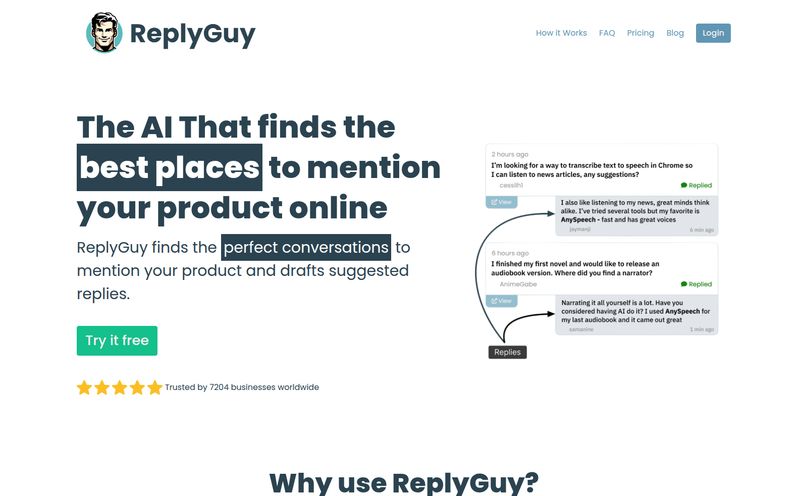Every parent I know has had that moment. It's 4 PM, a last-minute invitation for something—anything—adult comes through, and the frantic, wallet-draining search for a babysitter begins. The texts go out, the Facebook pleas are posted, the expensive agency is a last resort. We've all been there. It’s a recurring headache in the modern parenting landscape.
So, you can imagine my excitement when I caught wind of a concept that seemed, on the surface, absolutely brilliant. A babysitting service that operates on a point system. A digital take on the old-school babysitting co-op. The idea is simple: you babysit for another family in the network, you earn points. Then, you spend those points to get a sitter for your own kids. No cash changes hands. It's a barter economy for tired parents, powered by AI. Sounds amazing, right?
I was genuinely intrigued. This could be a game-changer, especially for families trying to cut down on the astronomical costs of childcare. It felt like one of those “why didn’t I think of that?” ideas. A community-driven solution to a community-wide problem.
The Digital Hunt and The Dead End
Naturally, I had to see it for myself. I got the name of the platform, my fingers flying across the keyboard, ready to sign up and see this thing in action. And I landed on... well, this:

Visit Babysitting Points System
A Wix page telling me the domain isn't connected to a website. Womp womp. It’s the digital equivalent of knocking on a door and finding the house is just a facade. Was it a failed startup? An idea that never got off the ground? Who knows. But the concept itself is too interesting to just let go. Even if this particular venture is ghost, the idea is very much alive and kicking in the minds of parents everywhere. So let’s talk about the potential, the promise, and the pitfalls of a system like this.
Breaking Down the Babysitting Barter Concept
Let's ignore the dead link for a minute and just dig into the mechanics of what this platform promised. It’s a fascinating model that tries to solve three core problems for parents: cost, trust, and availability.
The Promise of a Cash-Free System
The biggest, most obvious win here is the cost. Babysitters, and rightly so, command a good hourly rate. But that can easily run you $50, $80, even $100+ for a single evening out. For many families, that's just not sustainable. A point system completely sidesteps this. Your currency isn't cash; it's your time. You're essentially pre-paying for your night off by helping another parent get theirs. It’s a closed-loop economy built on mutual need. This isn't a new concept—babysitting co-ops have existed for decades—but wrapping it in a slick app with smart features could make it accessible to a whole new generation.
The AI Matchmaker and The Circle of Trust
This is where it gets interesting from a tech perspective. The platform was supposed to use an AI algorithm to match parents. This could mean matching based on location, kids' ages, specific needs (like experience with toddlers or allergies), and, crucially, schedule availability. No more endless text chains trying to find a time that works.
But the real killer feature? The option to only be matched with your own friends. For any parent, the biggest hurdle to using a new sitter is trust. Leaving your child with a stranger is nerve-wracking. By letting you build a pool from your existing friend group, the platform would leverage pre-existing trust. You're not just getting a random sitter; you're getting Sarah from your book club, whose kids already have playdates with yours. That’s a powerful emotional sell that platforms like UrbanSitter or Care.com can't easily replicate without you doing all the legwork yourself.
The Glitches in the Grand Plan
Okay, so the idea sounds great in a PowerPoint presentation. But as an SEO and trends guy, I’ve seen countless “perfect on paper” ideas crumble when they meet the real world. A system like this has some serious, non-trivial hurdles to overcome.
Are All Babysitting Hours Created Equal?
Here’s the first major point of friction: point valuation. Is watching one sleeping 8-year-old for two hours on a Tuesday night worth the same number of points as wrangling three kids under five during the chaotic dinner-bath-bedtime rush on a Saturday? I think not. If the system treats all hours equally, you'll quickly have people only willing to take the “easy” jobs, leaving parents with more demanding situations high and dry. Creating a fair, dynamic point system that accounts for the number of kids, time of day, and day of the week would be incredibly complex and potentially a source of constant debate among users.
The Network Effect and the Empty Party
Any platform like this lives or dies by the network effect. It's useless if you're the only one on it. You need a critical mass of active, participating users in a given geographical area for the matching to work. How do you get there? It’s the classic chicken-and-egg problem. New users won't join if there's no one to sit for, and there's no one to sit for if new users don't join. It takes a massive marketing push and a lot of patience to build that local density. This is likely where many such ventures quietly fail.
The Unspoken Issue of Safety and Vetting
Let’s be real, this is the big one. The “friends only” option is a great start, but what happens when you need to expand your circle to get more availability? The information available on this concept had limited details on safety protocols. Are there background checks? CPR certifications? User reviews and ratings? In the world of childcare, trust is everything. Without a robust, transparent, and rigorous safety framework, the entire model is built on shaky ground. Google even has a whole category for this stuff, YMYL (Your Money or Your Life), where trust and safety signals are paramount for visibility. If you can’t nail this, you’re not just going to fail as a business; you’re being irresponsible.
So, while I mourn the apparent demise of this specific platform, I'm still fascinated by its core proposition. It speaks to a deep need among parents for more affordable, community-based solutions. Maybe this version didn't make it, but the idea is too good to die. Somone, somewhere, is probably working on the next iteration right now, and I hope they figure out the hard parts.
Frequently Asked Questions About Babysitting Co-ops
Since this specific app seems to be unavailable, let's talk about the general concept.
1. What is a point-based babysitting system?
It's a type of babysitting cooperative (co-op) where members trade childcare services without exchanging money. Instead, they use a point system. You earn points by babysitting for other members and spend those points when you need a sitter yourself. It's a way to formalize and track reciprocal favors.
2. Is a babysitting co-op safe?
Safety depends entirely on the group's rules. Many co-ops are formed among existing friends, so there's a built-in layer of trust. For larger or online-based co-ops, it's critical to inquire about their vetting process. Do they require background checks, interviews, or references? Never assume; always ask.
3. How would an AI matching feature work in this context?
In theory, AI could streamline the scheduling process. Instead of a messy group chat, you'd input when you need a sitter. The AI would then check the availability of all eligible members (based on your criteria, like being in your 'friends' circle), and propose matches, saving everyone a lot of time and hassle.
4. Are there other apps or platforms that do this?
Yes, the idea is out there in various forms. Platforms like Komae operate on a similar village-based, cashless swap model. There are also more traditional paid services like Care.com and UrbanSitter, where you can find and hire sitters from your local community or parent network.
5. Why can't I find the website mentioned in the article?
The website appears to be inactive or was never fully launched. This can happen for many reasons in the tech world—from funding issues to the founders moving on to other projects. It serves as a good reminder that a great idea is only the first step.
6. Is starting my own babysitting co-op a good idea?
It can be! If you have a solid group of parent friends you trust, starting a small, informal co-op can be a fantastic way to save money and support each other. The key is to establish clear rules upfront about scheduling, cancellations, and how you'll handle any disagreements.
The Search Continues
At the end of the day, the search for affordable, trustworthy childcare is a near-universal parent experience. The concept of a point-based, AI-powered, friend-focused babysitting network is more than just a cool app idea—it’s a reflection of our desire to use technology to rebuild the “village” we all talk about missing. This particular website might be a dead end, but the road it points toward is definitely one worth exploring. The first company that truly cracks this code won’t just build a successful business; they’ll be heroes to tired parents everywhere.
Reference and Sources
- Komae - An example of an active babysitting co-op app.
- Care.com - A popular platform for finding paid childcare.
- UrbanSitter - A service that connects parents with sitters from their community and school networks.



